The strange bedfellows of Evgeny Prigozhin
Prigozhin and: Budanov, Kapustin 'White Rex', Khodorkovsky, Navalnites, Azovite (FSB agent?) Korotktikh, Rusich's Milchakov and dead puppies. Emelyan Pugachev and Timothy McVeigh. Part I.
Barely a year has gone by, and now the name Prigozhin seems more like a meme than reality.
For those who weren’t watching the news on June 23-25, 2023: Evgeny Prigozhin was a former cook who spent some time in prison for armed robbery and eventually rose quite high in Russian politics. In the 2000s and 2010s he was dipped his entrepreneurial hand into troll bot armies, school food contracts, and overseas private military activity - the famous PMC Wagner. This, despite the fact that private military companies are formally illegal in Russia. His Wagner forces played a major role in the war in Ukraine, particularly in the war for Bakhmut (August 2022 - May 2023).
Prigozhin became more and more vocal, advertised both by mainstream Russian TV and his legions of highly agitated and relatively influential patriotic military telegrams ('Z-telegrams’). His shtick was painting himself as the People’s critic of official corruption and incompetence. A ‘pravdorub’, as they say, which comes from the word ‘pravda’ - truth, and ‘rubit’’ – to chop, cut, or hack. His criticism became so intense that many wondered if there was some cunning Kremlin 5d chess behind it.
Then on June 4, Ukraine’s much-awaited counter-offensive began. Things weren’t going swimmingly, until the event that had been so eagerly prognosed so many times by Russia-hawks took place – Russia was in turmoil, collapsing under the blows of a new 1917! On June 23, Prigozhin launched his bizarre coup, marching on Moscow with his troops - and getting quite close. If you were watching western news at the time - or Ukrainian - you would have noticed the euphoria. Putin will be overthrown by a revolution, Ukraine will win!
But not to be. Though his ‘March for Justice’ was hardly bloodless, he decided for whatever reason to turn away and never entered Moscow. Prigozhin reached an agreement with the Russian government - through the mediation of the charismatic Belarussian president Lukashenko - to withdraw his forces to Belarus.
Prigozhin was labelled a traitor by the Russian government as soon as his ‘march for justice’ began. He died in a helicopter crash several weeks later. His remaining forces were slowly integrated into the Russian army. The virulent militarist telegram channels loyal to him quietened down. But as we will see in this series, his spooky sponsors in the Russian elite have hardly disappeared, and his old media empire has turned towards new methods of social division.
The events of Prigozhin’s ‘coup’ remain as murky as ever. What happened? Why did Prigozhin come so close to victory? Why was he allowed to escape unharmed? With rhetoric that would be justly described as treasonous by any army (with absolutely no parallels in Ukraine), why wasn’t he neutralized long before June 2023? Why was the west banking on the victory of an ultranationalist military leader generally assumed by western media to be the apotheosis of the Russian mafiosi war criminal?
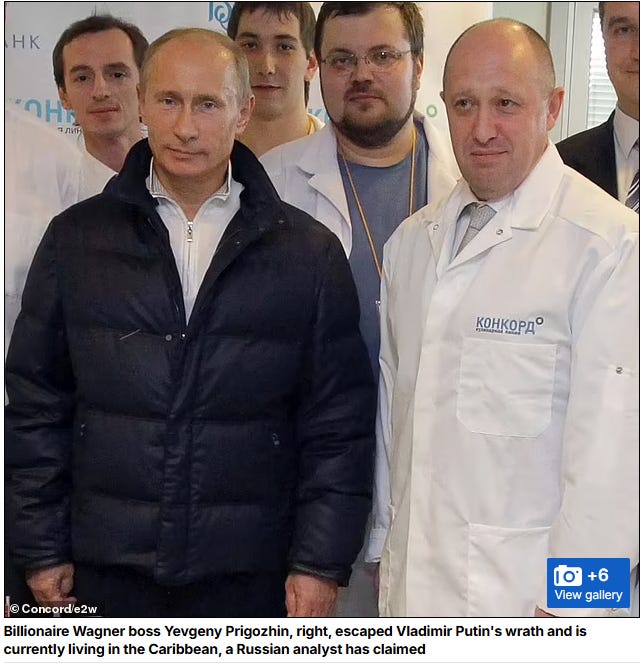
It’s time for us to become immersed in Russia’s hall of mirrors. The so-called Kremlin towers are ever locked in mutual struggle. It’s just as entertaining as Ukraine’s palace intrigues. And though certainly different in many ways, it is also quite reminiscent. And as we dig deeper into this story, we will find that sometimes the same people are involved.
The Budanov-Prigozhin connection
Today’s post will only be looking at Prigozhin himself. The sequels will go into the greater constellation of Russian monarcho-fascists suspected by some Russian analysts of concealing their pro-western fifth columnist nature using mystical Russian nationalism. This article will go into the most obvious and recent link between them and western forces – that between Prigozhin and Budanov.
Kyryllo Budanov is the head of Ukraine’s military intelligence, HUR. Since 2022, he has become the chief patron of Ukraine’s militarized neo-nazis, as I wrote here. He is also regularly feted by the western press, who attribute his (purported) many successes to his constant and thorough cooperation with the CIA and MI6. Ukrainian military analysts like Yury Butusov, by the way, accuse Budanov of running pointless, bloody PR actions. Butosov claimed that the SBU (Security Services of Ukraine). Budanov’s big competitor, are much more effective.
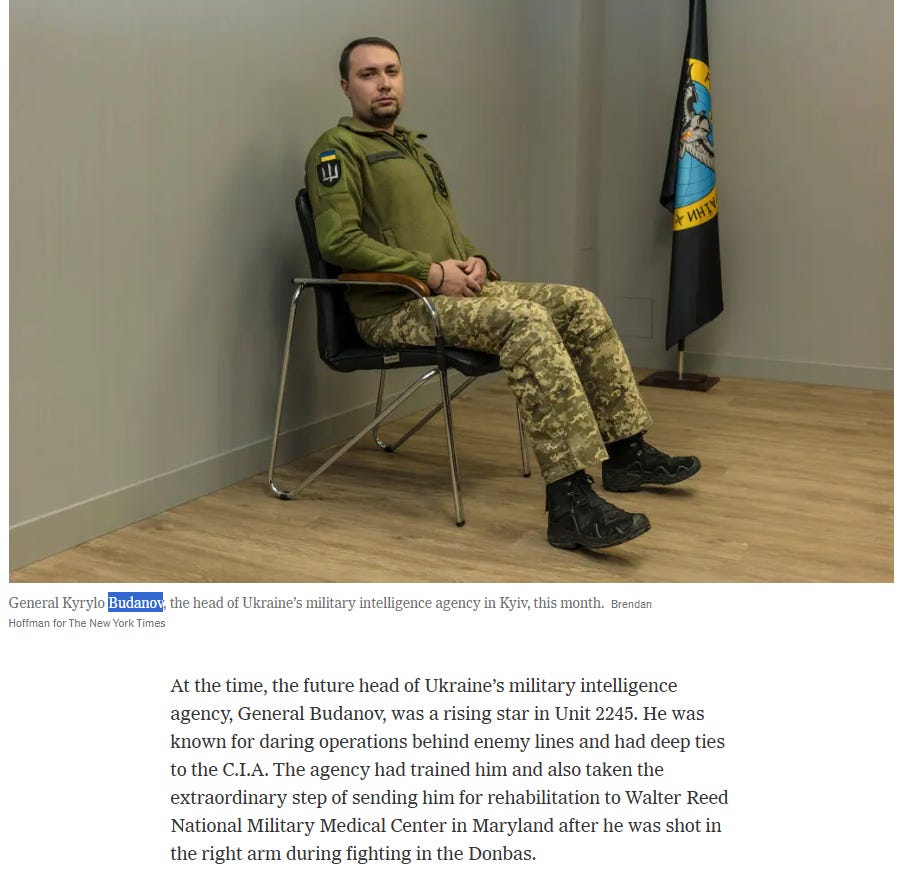
But one would assume that such a Ukrainian patriot wouldn’t be one to praise Prigozhin, right? Wrong. It began with Budanov supporting Prigozhin talking points against the regular Russian army. In an April 2023 PBS interview, Budanov mentioned a topic that would become one of Prigozhin’s bugbears. This was the campaign by the Russian MoD to unify private military groups under its command, particularly Prigozhin’s Wagner. This would be constantly referred to by Prigozhin as an example of ‘corrupt top brass’ trying to take over his ultra-effective super-soldiers and convert their stunning battlefield prowess into new country dachas. Eventually, it would be one of his main stated motivations behind his ‘March for Justice’.
Of course, the fact that Budanov mentioned this isn’t enough to prove links between the two. But it does seem to show that Budanov was eager to emphasize sources of friction between Prigozhin and the regular Russian army. This would support a first, safe hypothesis on the Prigozhin-Budanov relationship – that Budanov was interested in publicizing and exaggerating a potential split inside the Russian army, both with the hopes of accelerating it, and, given that this was on the American PBS, of encouraging Americans to keep supporting Ukraine. Why not, given that Russia’s collapse is imminent?
But things got more interesting in May. On May 13, the Washington Post released a long interview with Zelensky, filled with exciting tidbits about the imminent counter-offensive. But the most interesting part was here - note that WaPo brings up these details despite them not having been publicly leaked yet:
Q: The Washington Post has obtained documents that we have not published details about yet. We would like to ask you about some information there and also to give you the opportunity to respond to what is in there. One of them says that on January 31, you suggested occupying parts of Russia along the border for future leverage in the negotiations. Is that true?
A: Hardly (laughs).
Of course, Ukraine’s operation to occupy Russia’s Kursk operation began in August 2024. But here is what I really wanted to get to:
Q: The documents indicate that HUR, your intelligence directorate, has back-channel contact with Yevgeniy Prigozhin that you were aware of, including meeting with Yevgeniy Prigozhin and HUR officers. Is that true?
A: This is a matter of [military] intelligence. Do you want me to be convicted of state treason? And so, it’s very interesting, if someone is saying that you have documents, or if someone from our government is speaking about the activities of our intelligence, I would also like to ask you a question: With which sources from Ukraine do you have contact? Who is talking about the activities of our intelligence? Because this is the most severe felony in our country. Which Ukrainians are you talking to?
Q: I talked to officials in government, but these documents are not from Ukraine, they are from …
A: It doesn’t matter where the documents are from. The question is with which Ukrainian official did you talk? Because if they say something about our intelligence, that’s treason. If they say something about a specific offensive plan of one general or another, this is also treason. That’s why I asked you, which Ukrainians are you talking to?
Q: About these specific documents? You are the first person I am talking to about them.
A: Okay.
Q: And I can read you what information exactly there is about Prigozhin and the HUR. On February 13, Kyrylo Budanov, chief of Ukraine’s Main Directorate of Intelligence, informed you about a Russian plan to destabilize Moldova with two former Wagner associates. Budanov informed you that he viewed the Russian scheme as a way to incriminate Prigozhin because “we have dealings” with him. You instructed Budanov to inform Moldovan President Maia Sandu, and Budanov told you that the GUR had informed Prigozhin that he would be labeled a traitor who has been working with Ukraine. The document also says that Budanov expected the Russians to use details of Prigozhin’s secret talks with the GUR and meetings with GUR officers in Africa …
A: Listen, to be honest, well, you just read something, you say something. I just don’t understand where you get it, whom you talk to and so on. You talk about how I met with Budanov. This suggests that you — how do you put it? It looks like you have people who have some records or you have some evidence or you have something, because that’s what it looks like. You are again doing, I apologize, what you were doing before. You are releasing some sort of information that does not help our state to attack and does not help us to defend our state. So, I don’t quite understand what you are talking about. I don’t quite understand your goal. Is your goal to help Russia? I mean, that means we have different goals. If I’m not sitting at the same table with them, I don’t quite understand what we’re talking about. Each of these inquiries simply demotivates Ukraine, demotivates certain partners to help Ukraine. Well, one way or another, I just don’t understand your goal.
Q: Our goal is not to help Russia.
A: Well, it looks different.
Sorry about including the last section, but who doesn’t love a bit of incoherent Zelensky traitor-mongering? Immortal lines like ‘You are again doing, I apologize, what you were doing before.’
On May 14, the Washington Post released an article on these ‘leaks’ that it had unique access to. Note what I underlined in the following text – ‘previously unreported’ leaks, quite paradoxical indeed. Titled Wagner chief offered to give Russian troop locations to Ukraine, leak says, it describes events that apparently took place in late January, with Prigozhin making his offer because of the high losses his troops were suffering in Bakhmut:
Prigozhin said that if Ukraine’s commanders withdrew their soldiers from the area around Bakhmut, he would give Kyiv information on Russian troop positions, which Ukraine could use to attack them. Prigozhin conveyed the proposal to his contacts in Ukraine’s military intelligence directorate, with whom he has maintained secret communications during the course of the war, according to previously unreported U.S. intelligence documents leaked on the group-chat platform Discord.
It then implies that Prigozhin may have given up the positions of regular Russian army troops as part of his ongoing feud with the Ministry of Defense, though it admits there is no proof.
Two Ukrainian officials confirmed that Prigozhin has spoken several times to the Ukrainian intelligence directorate, known as HUR. One official said that Prigozhin extended the offer regarding Bakhmut more than once, but that Kyiv rejected it because officials don’t trust Prigozhin and thought his proposals could have been disingenuous.
A U.S. official also cautioned that there are similar doubts in Washington about Prigozhin’s intentions. The Ukrainian and U.S. officials spoke on the condition of anonymity to discuss sensitive information….
Against that tense backdrop, Prigozhin has carried on a secret relationship with Ukrainian intelligence that, in addition to phone calls, includes in-person meetings with HUR officers in an unspecified country in Africa, one document states. Wagner forces provide security to several governments on the continent.
The leaked U.S. intelligence shows Prigozhin bemoaning the heavy toll that fighting has taken on his own forces and urging Ukraine to strike harder against Russian troops.
According to one document, Prigozhin told a Ukrainian intelligence officer that the Russian military was struggling with ammunition supplies. He advised Ukrainian forces to push forward with an assault on the border of Crimea, which Russia has illegally annexed, while Russian troop morale was low. The report also referred to other intelligence noting that Prigozhin was aware of plummeting morale among Wagner forces and that some of his fighters had balked at orders to deploy in the Bakhmut area under heavy fire, for fear of suffering more casualties.
What about Prigozhin’s response to these accusations? The same WaPo article writes:
The documents also suggest that Kyiv suspects, or may know, that the Kremlin is aware of Prigozhin’s communications with Ukrainian intelligence, if not his secret negotiations over Bakhmut.
One document, based on “sigint” — or intercepted communications — states that Ukraine’s military intelligence chief, Kyrylo Budanov, “expected the Russians to use details of Prigozhin’s secret talks with the HUR and his meetings with their officers in Africa to make him appear to be a Ukrainian agent.” It doesn’t specify whether Budanov suspects Moscow may already know that Prigozhin is talking to HUR officers.
When informed that U.S. intelligence documents revealed Prigozhin’s communications with Ukrainian intelligence, the mercenary commander appeared to make light of the situation. “Yes of course I can confirm this information, we have nothing to hide from the foreign special services. Budanov and I are still in Africa,” Prigozhin wrote on Sunday via his Telegram channel.
In a subsequent, rambling audio file released Monday, Prigozhin didn’t directly respond to a question about his offer to disclose Russian troop positions in exchange for a Ukrainian pullback in Bakhmut.
What about Budanov’s response to these allegations? Days later, on May 16 2023, Budanov was quite complimentary towards Prigozhin in an interview. ‘80% of what he says is the truth’, he said. ‘Wagner has proven itself to be maximally effective, while the Russian MoD has been maximally ineffective.’ He continued on the 17th, claiming that Prigozhin would certainly triumph in his showdown with the Russian ministry of defence. ‘It will all end with a tribunal’, he predicted.
The Atlantic trace
So what were these leaks with strange intel on Prigozhin? More than 300 pages of confidential US intelligence reports on the war of Ukraine were ‘leaked’ on the gaming chat space Discord, and later to 4chan. The Washington Post claimed that it had been assured by its own US government contacts that the leaks were real. With the exception, of course, of a page depicting Russian casualty numbers much lower than the standard western estimates.
Meanwhile, Ukraine claimed that the leaks were Russian disinformation. Not only were Russian casualty levels too low and Ukrainian casualties too high, but the leaks also showed that Ukraine was burning through western artillery supplies with little effect. But who cares about such a predictable Ukrainian reaction.
More interesting was the response from the Grey Zone, one of the largest pro-Wagner telegram channels, part of Prigozhin’s formidable online array of heavy artillery. It claimed that the leaks were ‘disinformation of Western intelligence in order to mislead our command to identify the enemy’s strategy in the upcoming counteroffensive’. This perspective was reported by WaPo itself.
While the NYT was the first western media publication to report on the leaks on April 6, WaPo went on to play a major role in disseminating – or creating – the ‘leaks’. On April 16, they claimed to have found the Discord server where the image had first been posted. Apparently, the server - ‘Thug Shaker Central - had existed for several years, but only had a few dozen young, lonely members. They were slowly fed top-secret information from US military intelligence by the 21 year-old National Guard member eventually imprisoned by the leaks, Jack Teixeira. He apparently began posting photos of classified documents themselves from late 2022 onwards.
But in April, there was no mention in the western press about Prigozhin’s place in the ‘discord leaks’. It was only with the May 14 interview I reproduced above that WaPo would introduce the Prigozhin factor. Recall, also, that this was prefaced with ‘The Washington Post has obtained documents that we have not published details about yet.’
A May 15 article went into more details on these paradoxical ‘leaks’ that only it had access to, and was choosing of its own volition to ‘release’. It claimed ‘The Post also obtained a number of previously unreported documents from a trove of images of classified files posted on a private server on the chat app Discord’. PressWatcher claims that after its own inquiry to the Post regarding the source of its information
that language was modified to become both less and more revealing: “The Post also reviewed scores of additional secret documents, most of which have not been made public.”
Both descriptions are currently available on the Washington Post’s article. PressWatcher went on to quote a journalist at BellingCat (itself an outlet with well-known MI6 ‘cooperation’, but anyway):
Aric Toler, the online sleuth who tracked down the sources of the documents, told me more.
Toler is the director of research and training at Bellingcat, an independent investigative site based in the Netherlands. He now has a free-lance contract with the New York Times, where he has contributed to several articles.
The Times has only published articles based on the 100 or so documents that Toler found publicly available. That’s not the case with the Post.
“They got 300-400 leaks from their 17-year-old source who downloaded them from Discord,” Toler wrote to me via Twiter. “They’ll keep doing it indefinitely until all the ones they deem newsworthy are published, I assume.”
“There are 200 to 300 that were not public and exclusively held by Wapo,” Toler wrote.
One Discord server was called “Thug Shaker.” Most of the documents posted there were deleted before the leak gained public attention.
“The 17 year old kid was saving them from thug shaker as they were being posted,” then “gave his cache of them to wapo,” Toler wrote. Shortly after, the FBI raided his house.
From what I can tell, the information about Prigozhin’s supposed ties with Budanov would have never gone public without the intervention of the Washington Post. In a December 2023 article on the matter, WaPo seemed to gloat on its close work with the Biden administration:
The leak also raised doubts in Ukraine about Washington’s ability to keep sensitive secrets — a concern noted by Zelensky’s top advisers in September ahead of his trip to Washington to discuss war plans with Biden.
“Don’t share anything with Biden you don’t want on the front page of The Washington Post,” an adviser warned Zelensky during a pre-trip meeting, according to a person familiar with the conversation.
What to make of all this? I certainly don’t think it should be controversial to assert, at minimum, that the US government considered it beneficial to spread information about supposed Budanov-Prigozhin connections.
Pan-Slavic networks
But was this only a psyop to foment division between Wagner and the regular army? Ever since the mutiny, it has become standard for mainstream Russian media to call Prigozhin a western agent - they speculate that he started working for them while he was in Africa. The fact that even before the ‘leaks’ Budanov had been supporting Prigozhin in his struggle seems to lend credence to some kind of link between the two.
I believe that both were true – Prigozhin did have connections with Budanov, and publicizing these connections was a calculated psyop. Why do I believe in Prigozhin-Budanov links? They frequented the same circles. Both Prigozhin and Budanov employ(ed) a wide range of neo-nazi adventurers from the football hooligan movement. Many of the top military nazis in Ukraine grew up and spent much of their life in Russia, as well as spending some time in Russian/Belorussian law enforcement.
On the Russian side, there was of course Dmitry Utkin, a top figure in Wagner who many claimed was a neo-nazi. So little is known about the man that I won’t venture to say anything about it. But the Rusich unit always cooperated closely closely with Wagner, and it is led by the proud neo-nazi Aleksey Milchakov, who was also famous in 2011 for filming himself killing and eating a puppy. Rusich is filled with ‘paganists’ with black sun symbolism and the like. Again, I recommend my article on Slavic nazi-paganism.
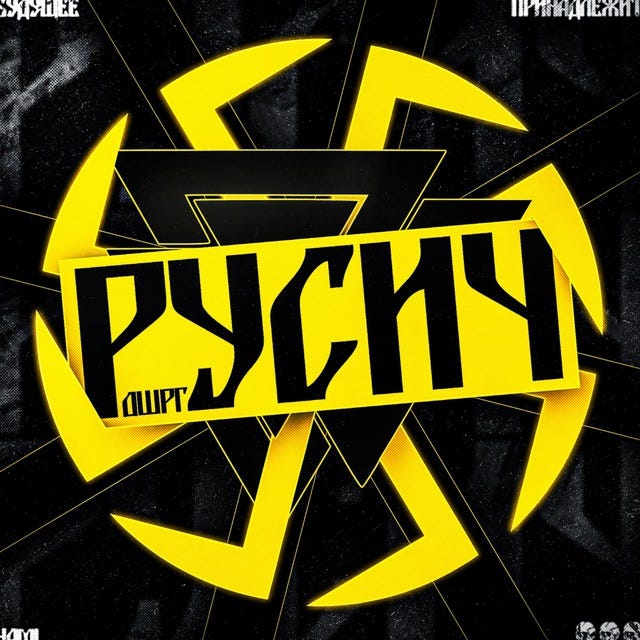
Ironically, one of Rusich’s most famous acts was its defeat of the neo-nazi Ukrainian unit ‘Aidar’ in 2015. From a dozen to 30 Aidar fighters were killed - many burned alive, with Milchakov filming himself carving his unit’s symbol (a kolovrat, the slavic swastica visible above) into a burnt man’s cheek. Photos were copiously posted online. Apparently they also rearranged the organs inside one of the dead men as well. They have also been particular vocal about the need to kill Ukrainian POWs, as well as apparently beheading them on camera - a topic whose political motivations I’ll cover in my next installment of the series.
Milchakov also fought on Wagner’s side in Syria. Bellingcat also claimed Milchakov was the man photographed holding a severed human head in Palmyra. Milchakov happily confirmed.
On the other side, take one of the most notorious and demented personalities in Ukraine’s Azov movement, Sergei Korotkikh ‘Botsman’. Born in Tolyatti, Russia, he moved to Belarus and worked for the country’s KGB in the 1990s. He claimed to have been fired for his ultrarightwing oppositional activities.
Korotkikh was one of the most prominent fascists in 2000s Russia, friends with Russia’s most famous nazi, Tesak (who later died in a Russian jail). Back then, neo-nazis in Russias were killing hundreds of muslim migrants a year, and that only officially. Korotkikh and Tesak are thought to have been the men involved in one of the most famous videos from 2007, ‘execution of a Tadzhik and a Dagi’, where two Muslim men are decapitated and shot after stating ‘we have been captured by Russian national socialists’. Korotkikh was given Ukrainian citizenship in 2015 for his ‘bravery’ fighting alongside the Azov batallion.
It shouldn’t be surprising that Russia’s neo-nazi scene is just as infested by government operatives as America’s. Ukrainian left-lib media, always eager to claim that all nazis in Ukraine are Russian, also claimed that Botsman worked with the Russian FSB. Botsman was also linked to a range of politicial assassinations in Ukraine. The man is a whole universe unto himself that could be picked apart endlessly, but I’ll try restrain myself.
Korotkhikh has apparently been living in Ukraine since 2004. But he always had plenty of friends who remained in Russia, which until 2013 was the undisputed capital of the pan-slavic fascist movement. In the 2000s, Russian and Ukrainian fascists saw little if any difference between each other – recall the famous photo of Ukrainian nationalists hanging out with Russia’s Alexander Dugin in 2005. ‘Illiberalism’ also wrote a quite interesting article about the long-standing contacts and cooperation between Dugin and Azovite ideologists.
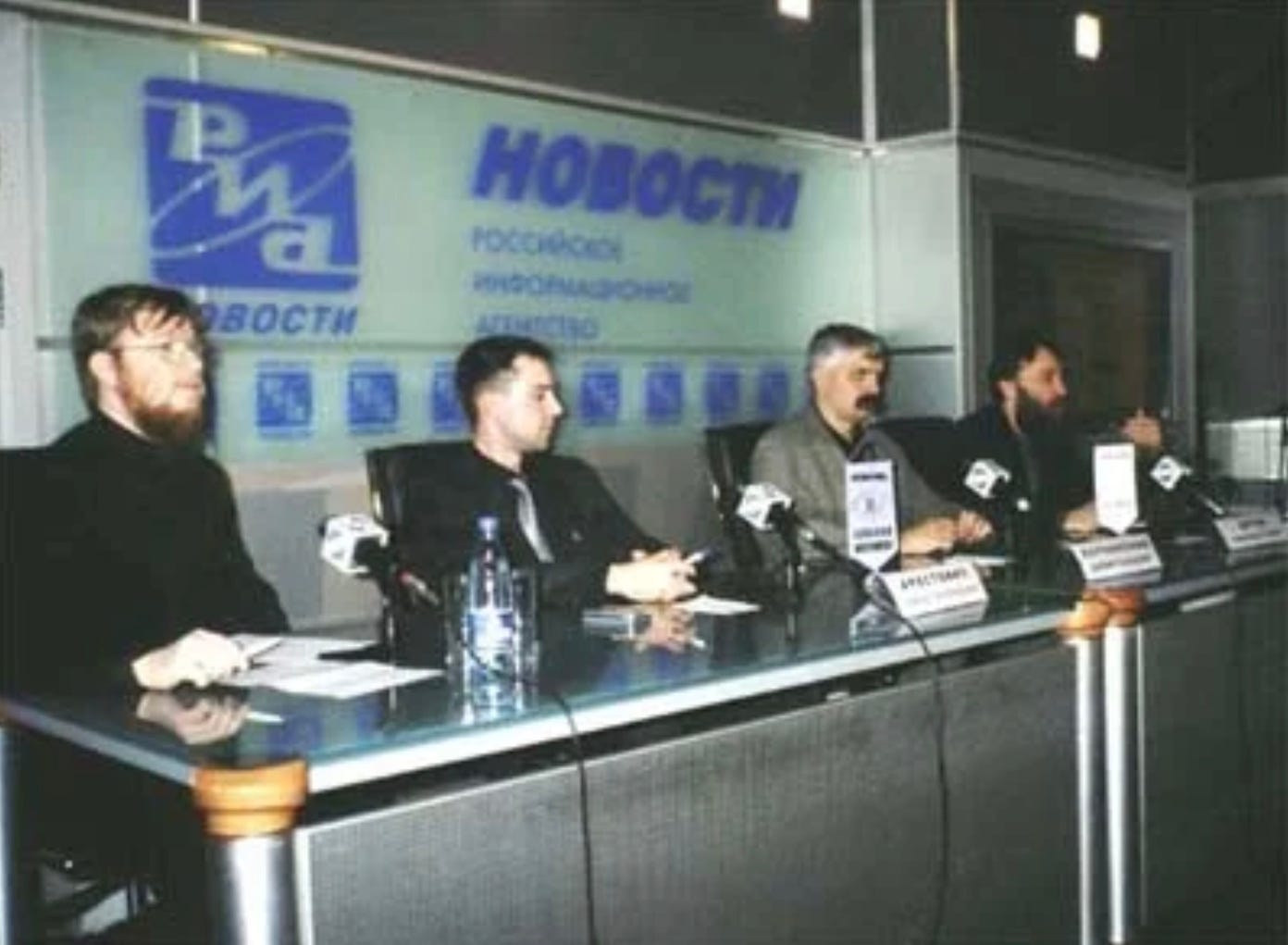
The Russian government started cracking down on neo-nazis from 2011, the year of the Bolotnaya protests, an era when liberals like Navalny allied with ethnonationalists like Tesak and co. This repression intensified after the 2013-2014 events in Ukraine, an anti-Russian coup where neo-nazis played a prominent role. Those who didn’t flee to Ukraine often tried to downplay their political views and, like any respectable rightwinger, join the police or the army. And there were certainly places for them to go where they didn’t have to hide their views too much - Wagner and Rusich.
It’s possible to elaborate at length on these strange crossovers. I’ll stop myself by simply noting that there would have surely been channels for communication between Budanov and Prigozhin. Budanov himself grew up in Odessa’s football hitlerite hooligan scene, and since 2022 has been the main state patron of Ukraine’s neo-Nazis.
And when Prigozhin’s march for justice took place, the whole gamut of Russian neo-nazis and liberal oppositions supported him. Milchakov of Rusich naturally, though he claimed that there had to be a peaceful resolution between the ‘just demands’ of Wagner, ‘the best fighting force in the country’, and the government. He also posted the following photo of him holding up his unit’s kolovrat swastica on the background of Wagner paraphernalia.
Denis Kapustin of the Ukrainian-funded ‘Russian Volunteer Corps’, another open Hitlerite, also vocally supported Prigozhin at the height of the ‘revolt’:
I think that, even though we stand on opposite sides of the barricades and have different views on the future of the Russian Federation, I can quite sincerely call him a patriot of Russia, without sarcasm or irony. <...> And here we have: an ambitious, angry, popular figure among the people and the military, a patriot commanding his own private army; a population demoralized by a prolonged and bloody war, and a vague political authority. Get ready!
Emigre liberal oligarch Mikhail Khodorkovsky also supported Prigozhin. Khodorkovsky is also among the supporters of Kapustin’s Russian Volunteer Corps. Top Navalnite politician Lyubov Sobol called on Prigozhin to ‘crush the chekists’ (the early Soviet secret police, referring here to Putin and the Russian government as a whole). As we’ll see later in this article, there are other parallels between Navalny and Prigozhin.
There has also been plenty of praise of Prigozhin by Ukrainian fascists. I’ve written already here before about how top Azovites have expressed admiration for Prigozhin. Here is what I wrote about Azov’s Dmytro Kukharchuk on July 7, 2024:
Kukharchuk spent a great deal of his interview talking ыabout his role in mobilizing prisoners. He compared himself to now-deceased (…) former leader of PMC Wagner, Evgeny Prigozhin, who he called ‘our most talented enemy’, an assessment his Ukrainska Pravda interviewer agreed with. Kukharchuk happily admitted that he often watched the famous videos of Prigozhin’s monologues at Russia’s prisons for inspiration.
Above, you can see Kukharchuk in more carefree days as a football hooligan
To this day, I often encounter Ukrainian military telegrams and commentators semi-ironically praising Prigozhin. The psywar to split the Russian army has failed, so I don’t think they feel particularly compelled for operational reasons to praise Prigozhin on Ukrainian media that isn’t watched by any Russians anyway. At the very least, they simply admire Prigozhin’s brutality. Maybe they were also appreciative of his role in driving tens of thousands (by Prigozhin’s own estimates) of Russian soldiers to their death at Bakhmut.
Russian theories
Russian politicians also have their own view on the Prigozhin affair. Let’s turn to Oleg Matveichev’s account. A senator in Russia’s Duma (parliament) from the ruling United Russia party, Matveichev is a staunch opponent of Prigozhin and his allies. His ideology can be considered one of Russian imperial statism.
Historically, this ideology has tended to be opposed to Russian ethno-nationalists, precisely because of their tendency to divide the multi-national empire into ethnic statelets. As I wrote in my article on nazi paganism, the ideal western allies in Russia are the same as those in Ukraine - a mix of ‘liberal’ ethnonationalists and open hitlerites. The latter would love to see Russia drastically shrink by ridding itself of all territories inhabited by the Muslim nations they so despite. Just consider the case of the Ukrainian-created ‘Russian Volunteer Corps’, filled with the most absurd esoteric Hitlerites.
Of course, the ideologies of Russian ethnonationalism and Russian imperialism do cooperate at times. But it’s always been a rather abusive relationship. If you follow Russian (and Ukrainian) nationalists, their main preoccupation is cursing Putin’s ‘bolshevism/globalism/cultural marxism’ – ie, his admission of millions of non-Russian labour migrants and his constantly reiterated belief in the multinational basis of Russian state ideology. More on that topic in the sequel to this article – Prigozhin’s old Z-telegram channels have switched their attention after the big man’s death towards stirring up anti-migrant hatred.
Anyway, onto Matveichev’s ruminations on Prigozhin. He has theories on the foreign roots of just about every non-statist political tendency in Russia, from the liberals to the marxists. He is also intellectually honest enough to happily admit that state policies were often responsible for the fact that Russian citizens were willing to go along with said revolutionary ideologies. But for him, the danger of statelessness anarchy is worse.
Characteristically for those of his persuasion, his answer on Prigozhin involves travelling 300 years back in time. He delivers his stunning historical parallel in a 2024 interview - that Prigozhin is the modern reincarnation of Emelyan Pugachev. Who is Pugachev? Time for some more Cossackophilia.
In short, Pugachev was he was a Russian Cossack who raised up one of Russia’s largest ever peasant uprisings in 1773-1775. Claiming to be the dead Tsar Peter III, he roused up thousands of slaves, serfs, and ethnic minorities, with the main aim of killing nobles, in the short-term anyway. One can speculate whether a victorious Tsar Pugachev would have abolished serfdom, but I tend to be skeptical towards the great promises of the Cossack ‘revolutionaries’. Especially since I agree with Matveichev on the parallels between him and Prigozhin.
No matter how you judge it, the Pugachev revolt played a huge role in Russian history. It led to perhaps the most lasting and significant centralization and solidification of imperial under Empress Catherine the Great. It also played a role in the dissolution of Ukraine’s Cossack parastate, the Zaporizhzhian sich. This event would come to play a major role in the martyrology of Ukraine’s nationalist historiography.
Anyone with interest in Russian history finds Pugachev fascinating. The great Soviet historian Pokrovsky bemoaned Pugachev’s decision not to march on Moscow at a time when he had resoundingly defeated imperial forces - as a result, they had time to reorganize and defeat him. This tendency not to make good on one’s gains was shared not only by Prigozhin but also by Ukraine’s other great (and similarly historically ambiguous and parapolitical) Cossack revolutionary Bohdan Khmelnitsky, as I wrote here.
The revolt was also memorialized in countless works of Russian literature, most famously in Pushkin’s ‘the Captain’s Daughter’. Pushkin’s verdict would become one of the most quoted lines of Russian prose:
God save us from seeing a Russian revolt, senseless and merciless.
Matveichev also has quite a negative view of Pugachev. But he criticizes Pushkin’s conception of the revolt as a ‘senseless’ manifestation of Russian anarchy. Matveichev’s argues that Pugachev and Prigozhin’s similarity lies in their both being unwitting foreign agents. For those particularly interested, this view on Pugachev is all laid out in detail in his 500 page book on the topic, released in 2024 and available freely online (among his ideological idiosyncrasies is relentless criticism of intellectual property rights).
According to Matveichev, the influential aristocrat Nikita Panin and local freemasonry were plotting along with British interests to set up a ‘noble’s republic’ in Russia. As I wrote in older articles, the Russian nobility fervently admired the Polish Lithuanian commonwealth (PLC), where nobles had total power to exploit, torture and kill their peasants, unlike the Russian empire, where nobles complained of cruel persecution by the Tsar.
There were also significant political-economic differences. The economic historical Immanuel Wallerstein argued that the PLC was purely economically dependent on its agricultural exports to western Europe, while the Russian empire managed to maintain its economic sovereignty. For those interested, I recommend volume I of Norman Davies’ God’s Playground to read more about the perpetual deindustrialization and economic regression characteristic of Poland’s ‘noble paradise’, and hell for peasants.
Back to Matveichev’s theory. He claims that Panin enrolled Pugachev in his devious plans during Pugachev’s (quite decorated) service in the Russo-Turkish war of 1768-1774 (Pugachev deserted in the early 1770s). He also claims that French advisors fought on Pugachev’s side and provided financial support, and there were plans for the Turkish sultan to join in. The Poles, needless to say, were also involved. Pugachev’s uprising was taking place at the same time as the first partition of Poland (1772) and the Russo-Turkish war (1768-1774). Matveichev compares the Polish partition to the current ‘Special Military Operation’ to divide Ukraine.
However, Matveichev doesn’t believe that Pugachev was simply a paid agent. Instead, he believes that the illiterate Cossack was manipulated by a range of powerful forces. Indeed, the Russian politician believes that Pugachev was barely aware of what was going on. Matveichev speculates that Panin might have told Pugachev that he could save him from execution as long as he didn’t tell the imperial interrogators about his links with Panin.
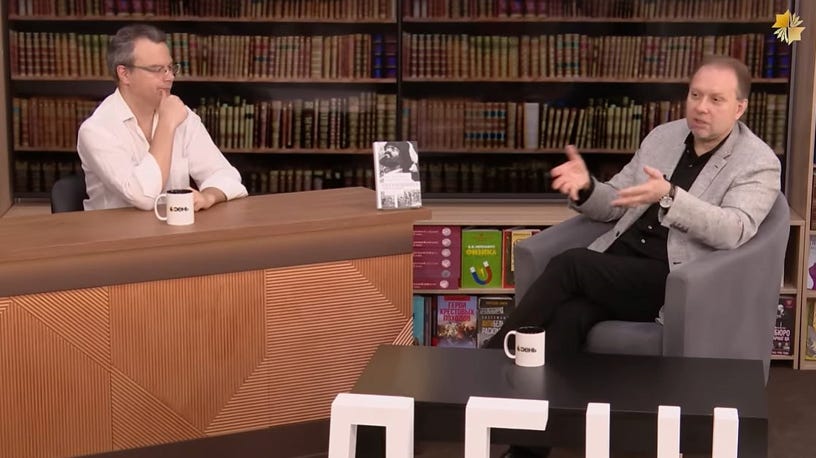
It reminds me of Timothy McVeigh in his final weeks. Determined to perpetuate the ‘lone wolf’ narrative, willing even to accept the death sentence, convinced as he was by his handlers that he would be replaced with a double and sent on another mission.
So what about Prigozhin? The parallels are obvious enough. Both were semi-private military forces employed by the Russian government in its border wars – the Cossacks were essentially the PMCs of the time. Both became too arrogant after their military successes. And they both managed to fight in or around Ukraine – Pugachev was particularly honoured for his bravery against the Turks in the 1770 battle of Bender. Bender is located in the separatist, pro-Russian province of Transnistria/ Pridnestrovie, located right on the border with Ukraine. Ukraine’s modern-day chocolate king ex-president Poroshenko grew up nearby, and has family in Bender.
Now, back to the present. Matveichev gave an interview on the topic of Prigozhin’s uprising as it was happening. His verdict was the same as that on Pugachev – Prigozhin was a ‘psychologically unstable individual’ who became utterly unhinged by his military successes. While Matveichev has the memorable line that ‘at first, in the 2000s, I hoped he would be a Russian Soros, stirring up pro-Russian revolution in Africa and Latin America’, he quickly realized that the man was an untrustworthy scammer.
He also denies that Prigozhin ever had much access to Putin, claiming that this was hugely overblown by Prigozhin and liberal pro-western oppositionists like Navalny. Keep in mind what I noted earlier about how liberal emigres in the Navalny orbit supported Prigozhin’s ‘March for Justice’. Keep in mind, also, that Navalny was quite a virulent anti-migrant racist until it became less profitable to say so openly. He was known for attending the fascist ‘Russian march’.
Matveichev claims that Navalny’s team was engaged in active PR support for Prigozhin in the leadup the coup. He also points out a similarity in rhetoric. Prigozhin used Navalny’s populist, anti-corruption rhetoric, but targeting top brass like Shoigu and Gerasimov for supposedly ruining military capabilities.
Matveichev goes on to criticize Prigozhin’s whole opposition to the army. Against Prigozhin’s laims of Russian military incompetence, Matveichev argues that the Russian strategy is and should be to wear down US support for Ukraine through an endless, expensive conflict, which doesn’t require Russian territorial advances. The idea is for Ukraine to become like Vietnam for the US through ‘methodical pulverization’, as opposed to Prigozhin, who ‘had to lay down the lives of 15 thousand boys for his own personal glory’.
He ends through a rousing call to obey chain of command. "We need to kill the Ukrainian, the Makhno in our head…The only thing that can defeat us is ourselves…We all become like Vlasov when we start pretending we know more than Putin, or Stalin, or Ekaterina…The masks are off, now we can identify all the Prigozhinite, Vlasovite pseudo-patriotic fifth columnists."
Matveichev’s take on Prigozhin can be summed up as follows: glorified by the Russian media, he got caught up in dark games that he may himself not have fully understood.
But Prigozhin surely wasn’t quite as unwitting. At the very least, he was literate. He also visited far more continents than Pugachev probably even knew existed.
Prigozhin lives…
My readers might know that one of the most popular memes surrounding Prigozhin is his supposed survival.
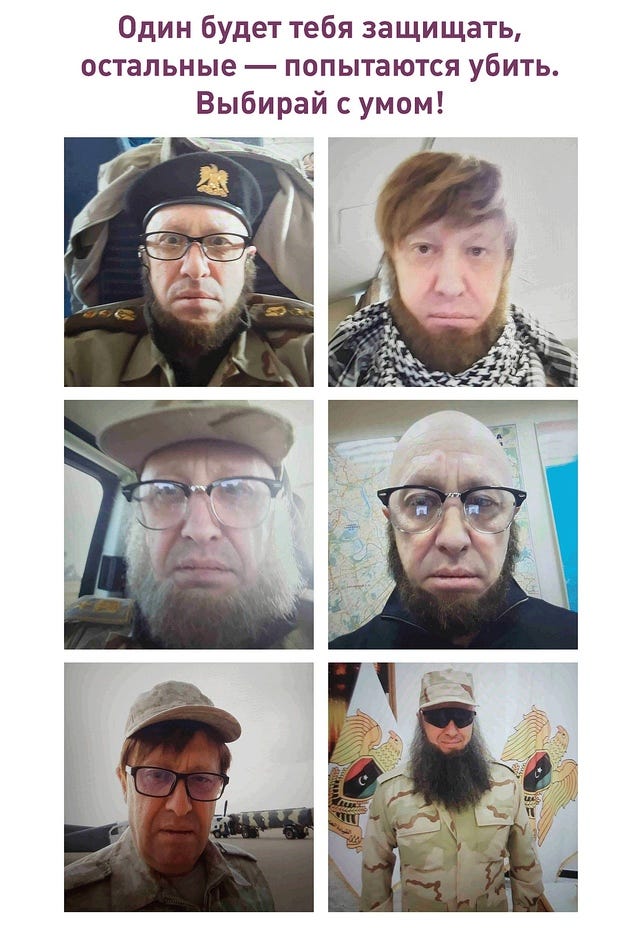
There were also the same myths about Pugachev, who himself claimed to be the deceased Tsar Peter III. Just like there are reasons to believe that Timothy McVeigh wasn’t truly executed on June 11, 2001.
But no matter if Prigozhin the man lives, the forces he represented certainly haven’t died.
Why was Prigozhin so glorified by wartime Russian media? Why were his constant attacks on the Russian army and state tolerated, when people who stated far milder things were imprisoned? Who stood behind Prigozhin? In which Kremlin tower did Wagner’s patron reside? Such will be the topic of the next article. Luckily, Matveichev has plenty of thoughts on the matter as well.
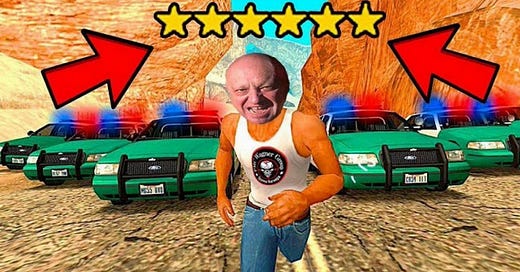



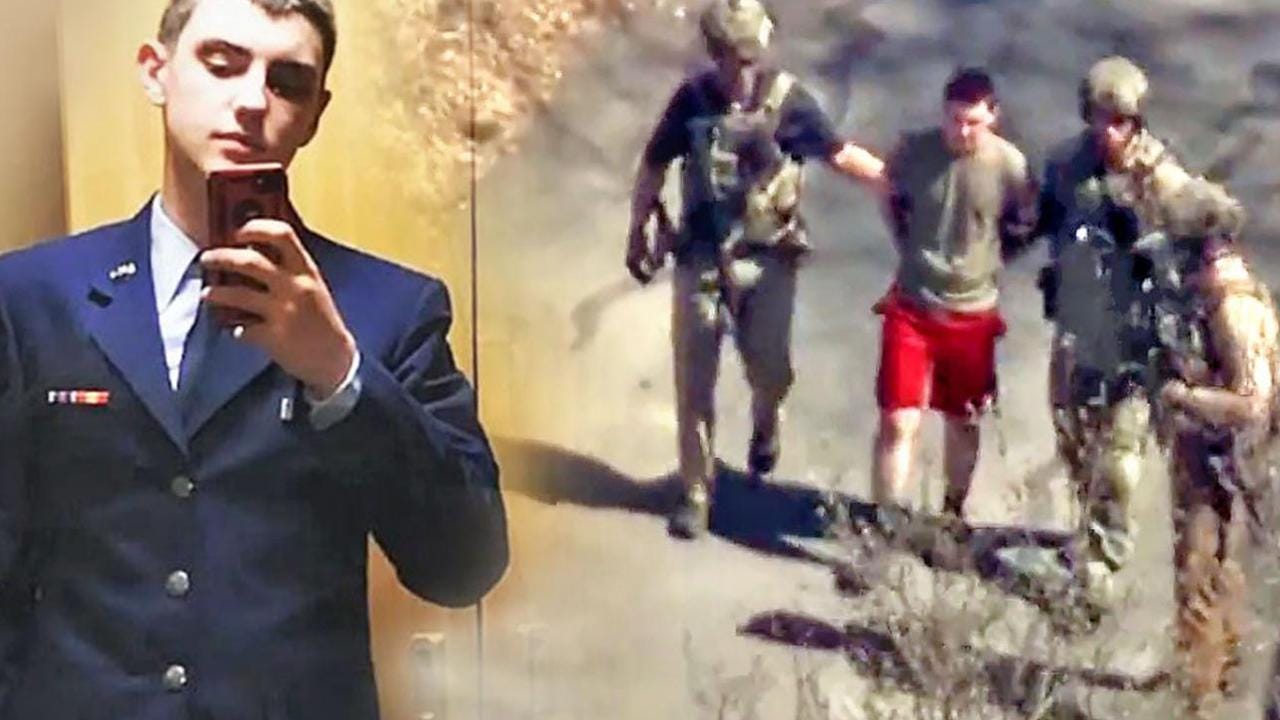

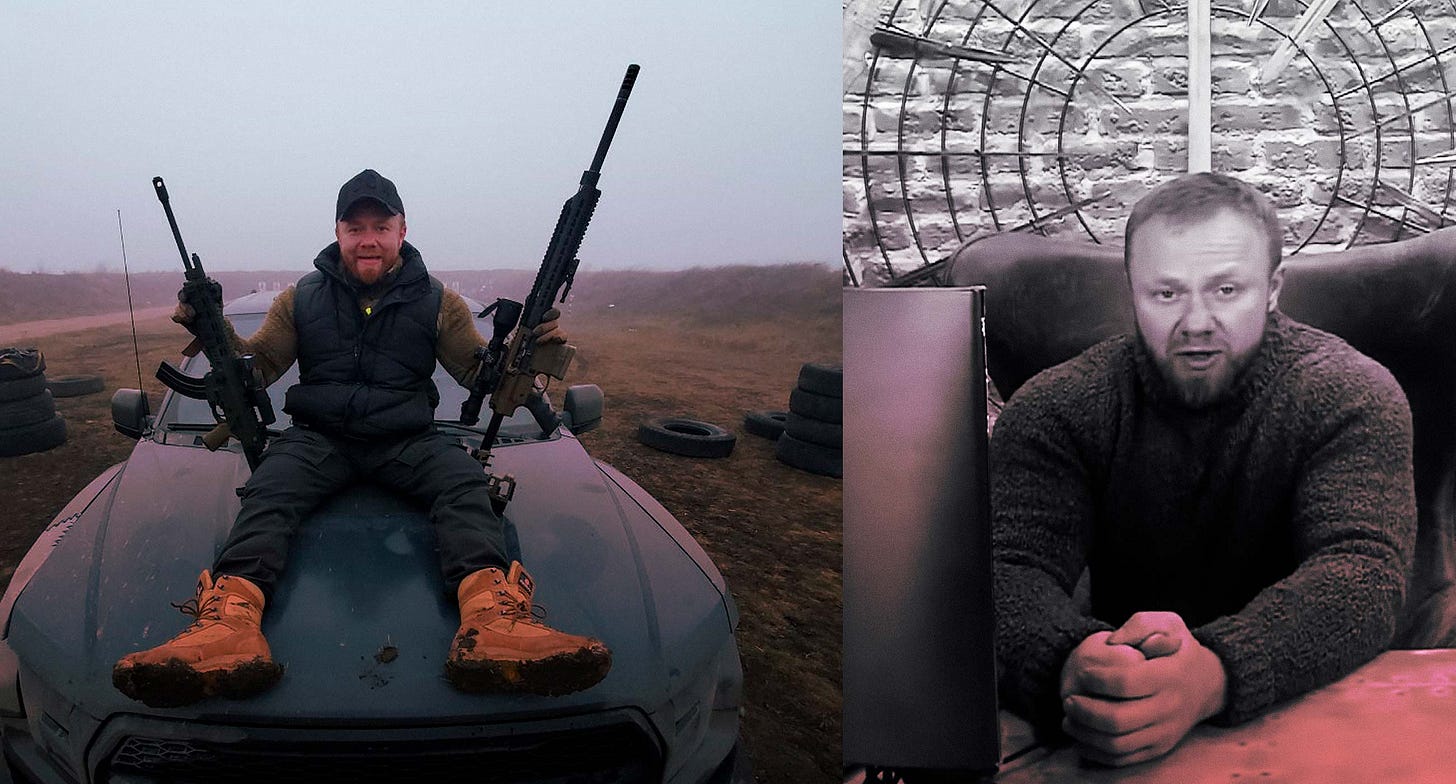
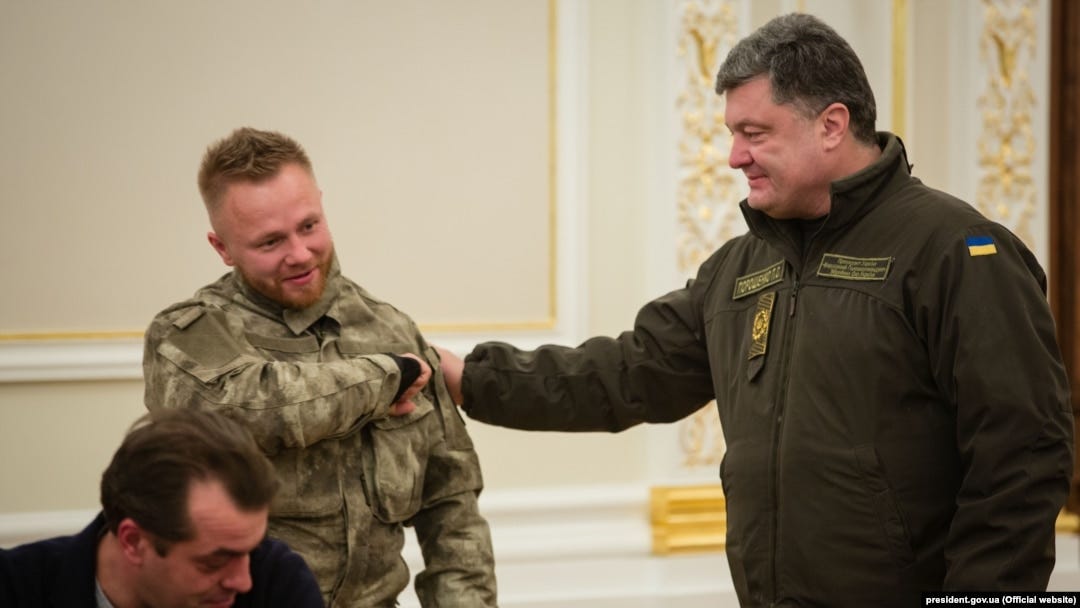
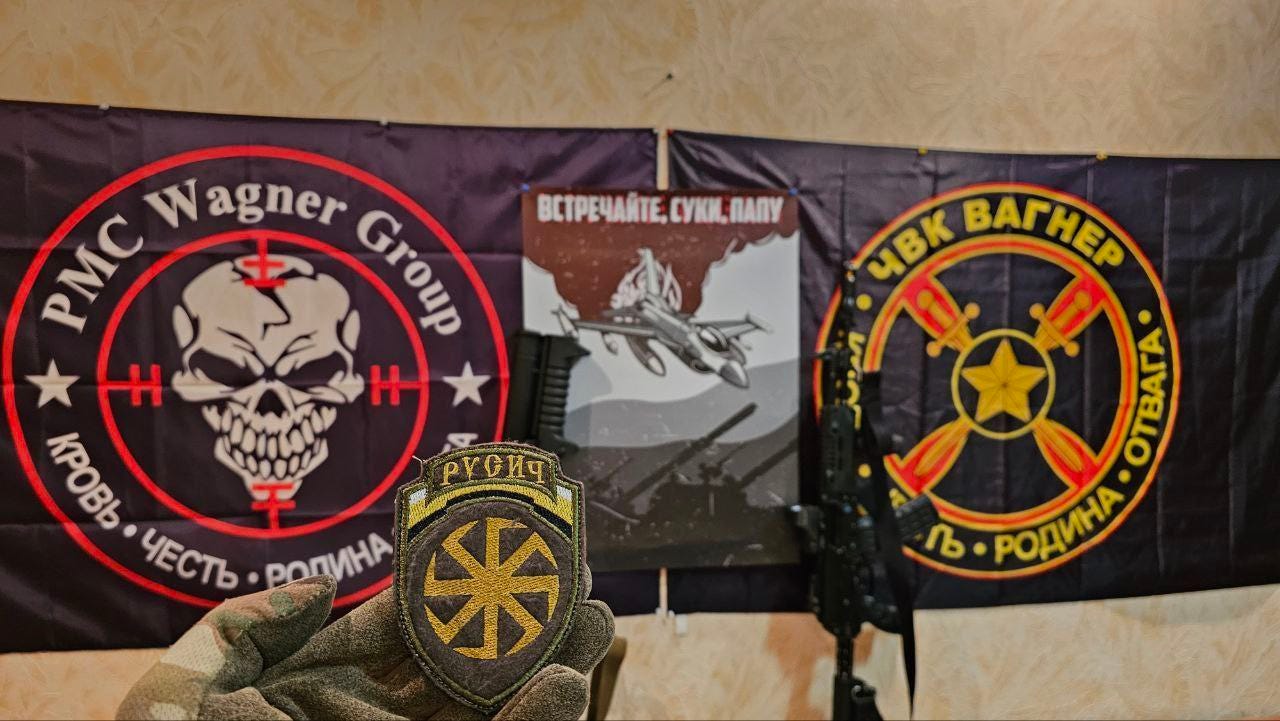
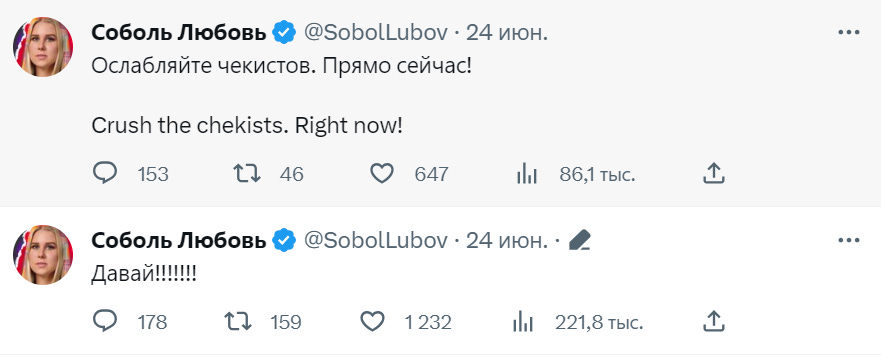
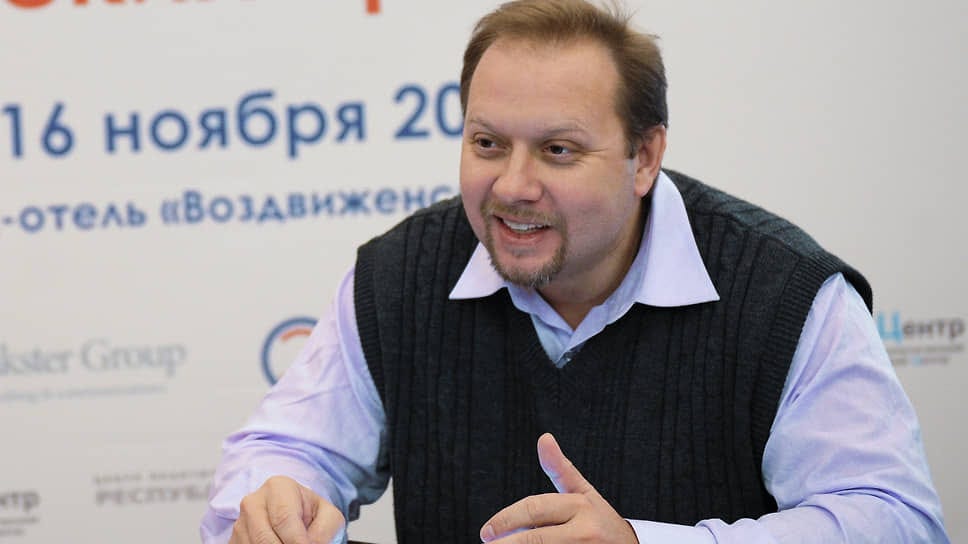
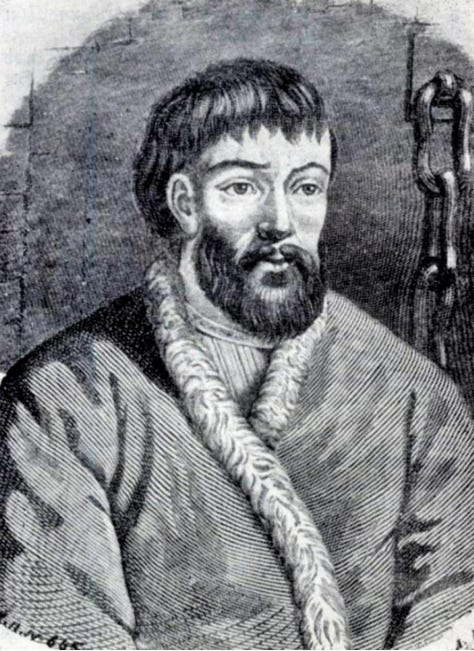
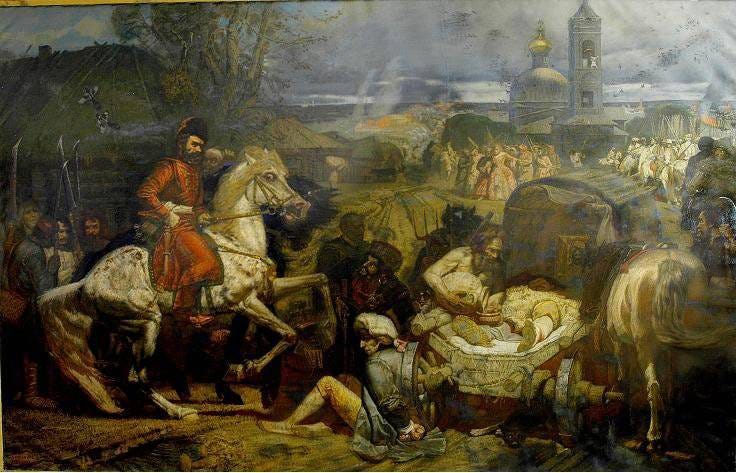
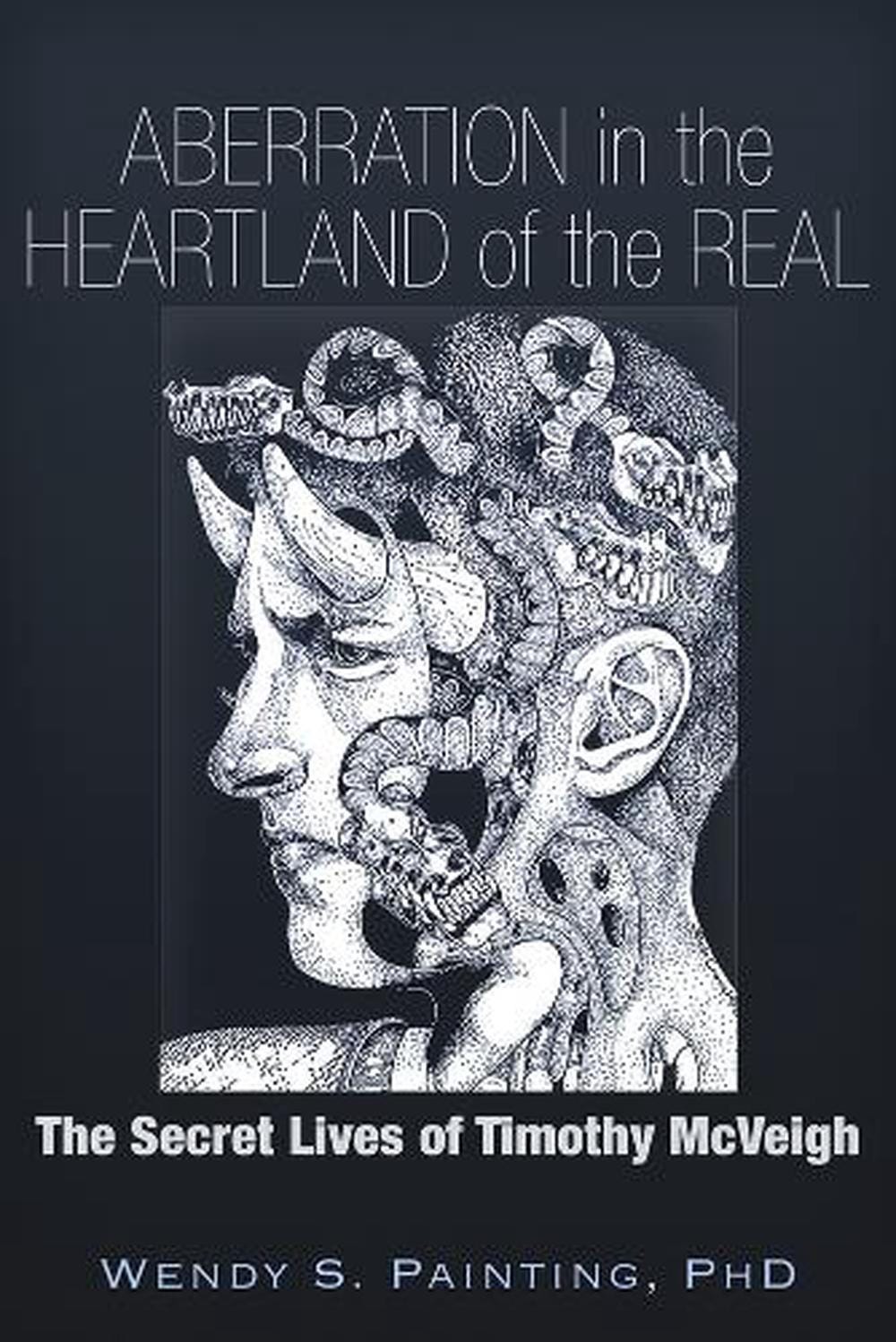
It's kind of remarkable that even during the war, Putin's regime didn't manage to fully consolidate the elite around him. He's stabilised it against the sanctions and built up military Keynesianism. But the whole Prigozhin and rogue elites thing is reminiscent of the early days of the Donbass war (at least according to Arutunyan in her Hybrid Warriors book).
I think it may just has to do with convenience given how much Wagner is involved in Battle of Bakhmut.
In addition, people or news editors tend to have “our side good” mentality. It applies the same for both Russian and Ukrainian, so no matter what Wagner says, as long as they aren’t doing things off the line, they would be considered “one of us”
This is irrelevant but kinda similar to “anti-imperialist” Japanese volunteer fighting for Donbas separatists, glorified by Patrick Lancaster, despite being a literal Japanese imperialist who aces not seeing that Shanghai wast controlled by Japan.